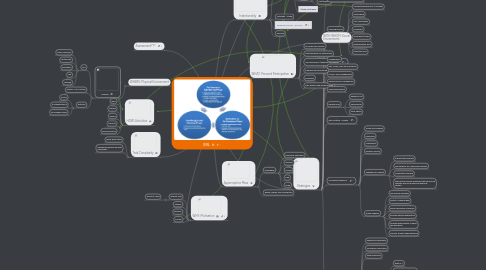
1. HOW: Activities
1.1. Discussion
1.2. Q&A
1.3. Testing
1.4. Papers
1.5. Projects
1.6. Group Projects
2. Task Complexity
2.1. Break down tasks
2.2. Feedback supports low task complexity
3. WHY: Motivation
3.1. Interest level
3.1.1. Personal Value
3.2. Intrinsic
3.3. Extrinsic
3.4. Control
4. WHERE: Physical Environment
4.1. Medium
4.1.1. F2F
4.1.1.1. Small classroom
4.1.1.2. Lecture hall
4.1.1.3. Recitation
4.1.1.4. Lab
4.1.1.5. Tutoring
4.1.2. Hybrid - F2F & Online
4.1.3. Distance
4.1.3.1. Online
4.1.3.2. Correspondence
4.1.3.3. Self-guided study
5. Assessment???
6. Self-Awareness
6.1. Know what you know
6.2. Know what you don't know
6.3. Know what you need to know
6.4. Know barriers
6.5. Know motivators
6.6. Know resources
6.7. Know to check-in
6.7.1. Collaboration
6.7.2. Review
6.7.3. Seek feedback
7. Intentionality
7.1. Goals - Dweck
7.1.1. Performance
7.1.2. Learning
7.1.3. Mindset
7.1.3.1. Growth/Incremental
7.1.3.2. Set/Stagnant
7.1.4. Student influence
7.2. Mindsight - Siegel
7.3. Deliberate Practice - Ericcson
7.4. Purpose
8. WHAT: Personal Participation
8.1. Accurate self-monitor
8.2. High standards for satisfaction
8.3. Self-efficacious ( Bandura and Pajares)
8.4. Frequent self-monitoring
8.5. Persistent
8.6. Sets specific and proximal goals
9. Strategies
9.1. Openness - suspension of assumptions
9.2. Learning tool kit
9.2.1. Connecting personally to content
9.2.2. Note taking
9.2.3. KWL worksheets
9.2.4. Mindmaps
9.2.5. Know how to learn
9.2.6. metacognitive skills
9.2.7. Executive skills
9.3. Collaboration
9.4. Edit, revise, learn from feedback
9.5. WHEN: Time Management
9.6. Physical Space Management
9.7. Technology skillset
9.8. Disaster Plan
9.8.1. Resource List
9.8.2. Data Backup
9.8.3. Work Ahead
9.9. Goal-Setting - Schunk
9.10. Successful behaviors
9.10.1. active and engaged
9.10.2. interested
9.10.3. contributors
9.10.4. problem-solvers
9.10.5. strategies to support
9.10.5.1. instruct/demonstrate
9.10.5.2. ask students for a summary question
9.10.5.3. cooperative learning
9.10.5.4. plan lecture around questions that the lecture answers and use a personal response system
9.10.6. Group behavior
9.10.6.1. ask precise questions
9.10.6.2. persist in seeking help
9.10.6.3. apply explanations received
9.10.6.4. provide detailed explanation
9.10.6.5. provide opportunities to apply the help given
9.10.6.6. monitor student understanding
9.11. Reading strategies - successful
9.11.1. determine importance
9.11.2. summarize information
9.11.3. draw inferences
9.11.4. generate questions
9.11.4.1. what is...?
9.11.4.2. what is the relationship?
9.11.4.3. compare and contrast
9.11.4.4. why?
9.11.4.5. how does ... work?
9.11.4.6. what was the effect of....?
9.11.4.7. what is the structure and function of...?
9.11.4.8. Reasons
9.11.4.8.1. Curious
9.11.4.8.2. Increase understanding
9.11.5. monitor comprehension
9.11.5.1. knowing when you know
9.11.5.2. knowing when you don't know
9.11.5.3. knowing what to do about it when you don't know
10. Apperceptive Mass
10.1. Knowledge
10.1.1. Familiarity with topic
10.1.2. Informal
10.1.3. Formal
10.1.4. Gap
10.1.5. Erred
